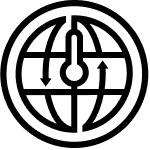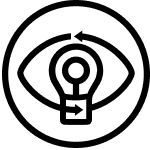THE NEW MONCLER INVESTOR RELATIONS APP IS NOW AVAILABLE
THE NEW MONCLER INVESTOR RELATIONS APP IS NOW AVAILABLE
“We judge the value of our results also by how we achieved them because long-term success comes from creating shared value.”
REMO RUFFINI

First place for the sixth year in a row in the Dow Jones Sustainability World and Europe indices in the Textiles, Apparel & Luxury Good sector; achieved for the second year the top score (A) in the 2023 CDP Climate Change questionnaire and AAA score from MSCI ESG Research
Of electricity used at directly managed corporate sites worldwide (offices, stores, production sites and logistics hub) from renewable sources from 2023
in scope 1 and 2 CO2e vs 20211
1 The scope 1 and 2 (market-based) CO2e emissions were calculated assuming Stone Island consolidated from 1 January 2021.
in directly managed corporate sites worldwide (offices, stores, production sites and logistics hub)
2 Achieving carbon neutrality involves reducing impacts through CO2 emission reduction activities such as purchasing energy from renewable sources, using more efficient lighting systems, using vehicles with low environmental impact and compensating residual emissions with carbon credits generated by positive impact projects.
of yarns and fabrics used in the SS and FW 2024 collections is made with “preferred” materials3 (>25% in 2023)
3 Materials that aim to deliver reduced impacts compared to the conventional equivalents used by the Moncler Group (for example recycled, organic, or certified according to specific standards)
of the nylon used in the SS and FW 2024 collections is made with “preferred” material, for example recycled (>40% in 2023)
women in management positions4
4 Data includes managers, senior managers, executives and senior executives
for equal pay between women and men for the Moncler headquarters in Italy
outerwear manufacturers audited on ethical-social criteria (2022-2024)
The investment to support local communities
People most in need protected from the cold over the past eight years (2017-2024)




